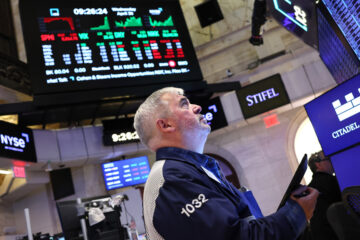The Covid pandemic changed how many people work. Some companies gave up their offices, while others moved to hybrid schedules. In many cases, businesses that would not hire remote workers have become open to it, and taken altogether these changes mean that fewer people are downtown.
Many restaurant owners made location choices based on the office lunch rush. It’s worth paying high prices for downtown real estate if you know that you’re an option for thousands of office workers on their lunch break.
Related: Major fast food restaurant operator files Chapter 11 bankruptcy
Take some of those workers away and it becomes very difficult for restaurants to pivot. People aren’t going to leave the suburbs and drive to a crowded city where they have to pay for parking just to eat lunch.
That’s a problem for larger chains and companies including Starbucks and Dunkin’, which put locations near offices to serve coffee and lunch breaks, have quietly closed some locations where the audience they once served has simply not come back.
For a single-location restaurant, even one with a storied history and a successful catering business, this change in people’s routines can be devastating. If some of your customer base simply doesn’t come into the city at all, or as often, it’s hard to recover unless your landlord offers rent concessions.
These changes, as caused by the Covid pandemic, have now claimed another victim as Milk Cafe, a long-time Boston favorite, has filed for Chapter 11 bankruptcy.
Cafes that relied on workers have struggled as many people go into the office less often.
Image source: Shutterstock
A Boston favorite has filed for Chapter 11 protection
Boston is a city built on history. It has countless tourist attractions that date back to the Revolutionary War, and a number of restaurants that would be considered national treasures.
Locals might argue about whether Santarpio’s or Pizzeria Regina has better pizza and many might complain that Legal Seafoods has grown maybe a little too much.
Most Bostonians, however, can passionately argue in favor of their most-loved North End Italian spot, or the tourist trap that’s actually worth visiting. You can’t walk too many blocks in the city without seeing a restaurant that has some history, with some like, Green Dragon Tavern, which opened in 1654, actually predating the United States.
Milk Street Cafe does not have quite as much history, but it has been open since 1981 and it has become a beloved piece of the city. The Covid pandemic, according to the company, and people not coming back to their offices, has forced the famous eatery and catering company to file for Chapter 11 bankruptcy in the District of Massachusetts bankruptcy court.
Milk Street Cafe has not filed a plan
Milk Street Cafe has been a vibrant part of Boston’s busy restaurant scene that grew from a cafe to a catering company that served area businesses.
“We’re a family-owned and operated business and feel honored to call Boston our home. Milk Street is an upscale casual restaurant and one of the premier corporate caterers in Boston. We’re known for our commitment to beautifully prepared, delicious, healthy and wholesome foods,” the company shared.
Milk Street was ahead of the curve when it came to offering options for people who want or require Vegan, Gluten-free, and other special diet menus. The cafe also offered a Kosher menu, a rarity in Boston, according to Universal Hub.
The restaurant has not filed a bankruptcy plan, but hopes to survive and has not closed, according to the website.
More bankruptcy:
Popular bakery chain files unexpected Chapter 11 bankruptcyStruggling housing brand files Chapter 7 bankruptcy, will liquidatePopular fast food, craft beer chain files Chapter 11 bankruptcy
In its bankruptcy filing, Milk Street Cafe reports that it has between 50 and 99 creditors. It also shared that it has between $1 million and $10 million in bost assets and debts. (Those are broad ranges based on checkboxes on the Chapter 11 bankruptcy form.
The cafe’s biggest creditors are its bank, Citizen’s Bank, which it owes $1.6 million, and its landlord, which is owed over $1.1 million. All of the other listed creditors are owed less than $40,000 each.


